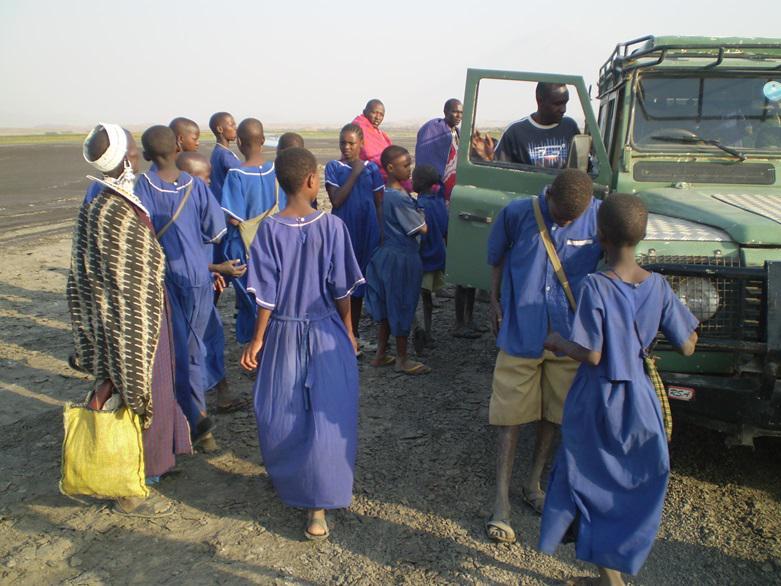Samora Macrice Andrew
Other projects
20 Sep 2010
Mobilizing Local Communities for Conservation and Management of the Threatened Lake Natron Basin, Tanzania
This project aims to raise awareness on functions and dynamics of Wetlands and motivate communities integrate conservation in their day to day life.

Study tour in the Lake Natron.
Lake Natron in East Africa is a Ramsar site and Important Bird Area known globally for its unique biota. The basin forms wetland complex which includes the lake, rivers, permanent lagoons, soda flats, swamps, seasonally inundated floodplains, large areas of evergreen grass, woodlands and edaphic grasslands. The wetland constitutes important natural resources utilized by the Maasai communities, fulfil several critical hydrological functions, and are internationally recognized as areas of high biodiversity. It contains a cross border ecosystem which goes to Kenya. The Lake extends 58 km south from the Kenyan border, has a mean width of 15 km and It is a shallow and highly saline lake. Of particular importance, it is the only significant regular breeding site for lesser Flamingos in East Africa and account for more than three quarters of the world population. Culturally the area borders the “Mountain of God” - Ol Donyo Lengai which is an active volcano and a tourist attraction site.
Lack of awareness on functions and dynamics of Wetlands is one of conservation challenges among the communities in Tanzania and in particular pastoralist’s communities like Maasai. The area experiences depletion of the ecosystem through anthropogenic activities, increasing population and the resulting pressure on resources. The absence of an integrated natural resource management plan and the proposed soda ash extraction are also other contributing factors. All these poses great threat to the sustenance and production functions of the Lake Natron fragile ecosystem. The project at hand intends to offer education, sensitize and raise awareness on the importance of sustainable utilization of the Lake resources with conservation mindset and integrate conservation in day-to-day life.
The environmental education (conservation, restoration and management) will mainly focus on the present communities, traditional leaders, schools, and mobilize establishment of village environmental committees, clubs, schools and village environmental programmes and encourage taking responsibility of conserving the lake ecosystem. The project will take a period of one year. The concept of participatory management of resources will guide the project whereby all key stakeholders will be part of the project planning and implementation. The local communities have a major key role to play as far as conservation of Lake Natron basin is concerned through sustainable/ wise utilization of the available resources. They have also indigenous knowledge on resources conservation, and this will be taped in the course of running the project. It is anticipated that the project shall contribute to better state and integrity of the Lake Natron Ramsar site for present and future generations.